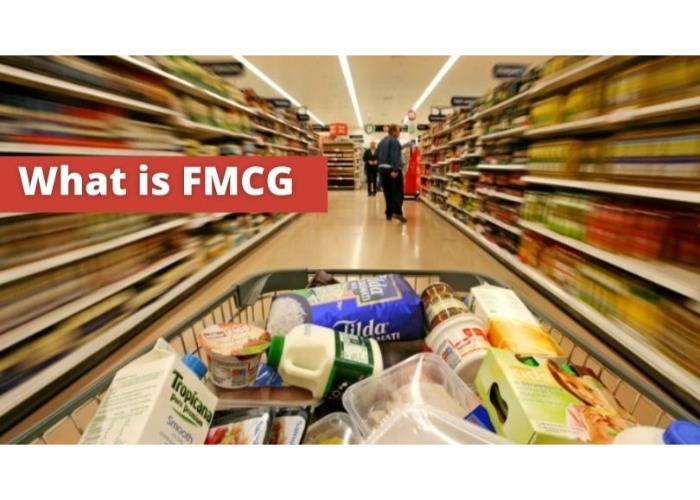You have probably heard about this commonly used term. On the off chance that you haven’t, let’s get into understanding what FMCG is and what importance it holds in our lives.
FMCG stands for Fast Moving Consumer Goods. This industry covers all the household stuff that you purchase when shopping in the store or a medical store. ‘Fast Moving’ suggests that the things which are fast to leave the racks and furthermore will, in general, be high in volume yet low in cost.
The ‘Products’ are ones that are basic things that we use every day. This multi-million dollar area holds the absolute most acclaimed brand names that we go over each and every day.
FMCG organizations are recognized for their capacity to give the purchaser the items that are exceptionally requested, while likewise building up a relationship with them that includes trust and dependability.
Every day used items, for example, those utilized in cleaning and clothing, over-the-counter medicines, food things, and personal care stuff make up most of the FMCG business. Notwithstanding, items, for example, plastic products, stationery material, medicines, and consumer gadgets are likewise positioned in Fast-moving Consumer Goods.
Why Work in FMCG?
There are a variety of reasons to work in the FMCG Industry if you are looking for a scope to reserve your place in it.
Development is a steady cycle in the FMCG business. They constantly need to come up with new bundling thoughts, promoting, publicizing and communications focused on the consumers. This makes it the ideal business for somebody hoping to work in a relentless and imaginative workplace.
The FMCG business is dynamic and different, which makes it inviting for any graduates with any degree. It doesn’t make a difference what certificate you have achieved, as there is a wide range of opportunities accessible in the business.
The FMCG business establishes a demand in consumer items requiring little to no effort that is promptly accessible. This implies that the kinds of goods in this industry are influencing consumers each and every day. Everybody is a buyer, so it gives you something to relate to.
There are likewise various acceptable work prospects in this industry. In any event, during the downturn, the FMCG business actually carried on benefiting greatly. As retail is the biggest private area business, there is an enormous number of graduate retail occupations accessible. Since 2012 there has been an expansion of 11.5% of graduate retail occupations made available.
The organizations engaged with the FMCG business are the absolute greatest brand names known far and wide. These incorporate Procter and Gamble, Unilever, Nestle, Kraft, and Johnson and Johnson. Working with these organizations on brands, for example, Kit-Kat, Neutrogena, Ariel, and many more can be an incredible chance.
Types of Job Roles in FMCG
There are various types of job roles in the FMCG Industry because of its dynamic nature. Here are a few job roles that can be potential for you to work in the industry.
- Procurement Analyst
Procurement Analysts must have a profound understanding of the business and suppliers so as to give a top to bottom analysis of the organization’s spend over various regions. They are needed to analyze and decipher specialized information to answer to the Operational Procurement, Procurement Development, and Category Teams; with the goal that they can drive quality control, expand their proficiency and furthermore give an understanding into how the business is performing.
- Sales Manager
Sales Managers are needed to develop the current business and build up a more extensive client base. This could be simply in the city or include India too. It is tied in with adjusting the controlled and gainful development, administration and conveyance, and the executives.
- Head of Sourcing
This activity job requires people that help to convey the organization’s key arrangement at the most minimal cost conceivable, while as yet keeping up the concurred quality and standard. The fundamental objective is to keep up sourcing advantage in the supply chain to maintain an upper hand for the business. Active sourcing can assist drive with supplying and the management.
- Stock Control Manager
As a Stock Control Manager, you will be answerable for appropriating the right degrees of stock inside. People will likewise need to keep a refreshed stock control cycle to guarantee ideal item levels over the entire organization. Setting and observing the stock levels is fundamental so as to meet the objectives set. It is significant that the inner processes influencing stock distribution are done.
Leaders in the FMCG of India
Here is a list of Top FMCG Leaders in India, based on their Popularity and Revenue.
Colgate-Palmolive
Colgate-Palmolive was developed from a little toothpaste and candle fabricating unit in nineteenth-century New York and a worldwide pioneer in close-to-home medical care items, after 200 years.
As indicated by the Annual Report of 2017-2018, the Company has around 38000 workers and has deals of INR 12045 crores.
Nestlé
Nestlé is a transnational food and drinks organization, settled in Switzerland. Nestlé India is an auxiliary of NESTLE S.A. of Switzerland.
Nestlé India goes back to 1912 when it started working as the Nestle Anglo-Swiss Condensed Milk Company. Post autonomy, Nestle has worked intimately with indigenous assembling and today has eight assembling offices in the nation for their items. The Indian workplaces are in Kolkata, Mumbai, Chennai, and Delhi.
ITC Limited
From its modest beginnings in 1910 Calcutta, ITC Limited has thrived into a top-notch brand, with a multi-business portfolio that incorporates FMCG, cordiality, paperboards and forte papers, agri-business, and IT.

